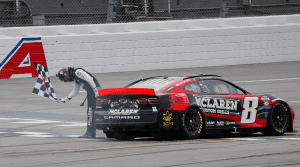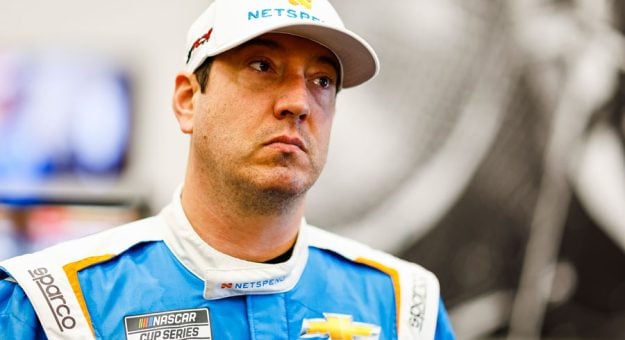CONCORD, N.C. — Six million dollars.
When asked what a NASCAR Xfinity Series driver like John Hunter Nemechek would need to secure a full-time ride in the Cup Series, Nemechek’s former team owner, Kyle Busch, had an honest answer.
“It’s not a success game anymore, it’s a money game,” said Busch, who lost his longtime ride at Joe Gibbs Racing last season because he didn’t have sponsorship. “If he can find the cash, there’ll be a seat waiting for him, I’m sure.”
As the owner of Kyle Busch Motorsports — a Truck Series operation that fields two full-time entries — Busch is familiar with the rising costs associated with NASCAR racing. From his perspective, the amount of money Cup Series team owners pocket from their involvement with the sport isn’t enough that they’re willing to re-invest in a talent pool.
Instead, the driver is primarily responsible for bringing funding to the team, creating a sponsorship-dependent structure for anyone wanting to climb the NASCAR ladder. However, Busch noted that not every NASCAR ride reflects this theme.
“I think Rick (Hendrick) is probably the only one, with Kyle Larson, but everybody else is all sponsorship-driven,” Busch said, referring to the recently crowned All-Star Race winner.

With a limited number of spots available in the ranks of professional racing — not just NASCAR — it’s inevitable that even the rarest of behind-the-wheel talents will never make it to motorsports’ biggest stages.
“When I raced super late models across the country, I raced against guys who were very, very talented and very capable of making it to the big time, but they never got there or had the right funding behind them,” Busch said.
He named Wisconsin’s Scott Hansen and Maine’s Mike Rowe as past examples of naturally gifted wheelmen who never reached their full potential in NASCAR.
His modern-day examples included Bubba Pollard, one of the most successful super late model drivers in the country, and Josh Berry, though Berry now appears to have his foot in the door for a Cup Series ride after serving as a substitute driver for Hendrick Motorsports at eight races this season.
“Sometimes when you’re here in Cup or Xfinity or whatever, the talent isn’t quite as grand as maybe it could be if you had all those types of guys here,” Busch said. “It would be a lot tougher. But that’s opinion, so who knows.”
The car disparity has also dropped, according to Busch, who is midway through his first season driving the No. 8 Chevrolet for Richard Childress Racing in the Cup Series. With lap time differences often coming down to tenths of a second, there is little separation found through the field when it comes to car capabilities among core NASCAR operations such as RCR, Joe Gibbs Racing, Hendrick Motorsports, Team Penske and Stewart-Haas Racing.
Busch concluded, “You had to have car disparity and driver disparity, and now you don’t really have either of those.”
